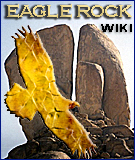Difference between revisions of "Research page:United Nations"
From eagle-rock.org
| Line 2: | Line 2: | ||
* '''Kant''' - The concept of a peaceful community of nations had been proposed as far back as 1795, when Immanuel Kant's Perpetual Peace: A Philosophical Sketch outlined the idea of a league of nations to control conflict and promote peace between states. Kant argued for the establishment of a peaceful world community, not in a sense of a global government, but in the hope that each state would declare itself a free state that respects its citizens and welcomes foreign visitors as fellow rational beings, thus promoting peaceful society worldwide.<ref>[http://en.wikipedia.org/wiki/League_of_nations#Origins League of nations, section Origins - Wikipedia]</ref> | * '''Kant''' - The concept of a peaceful community of nations had been proposed as far back as 1795, when Immanuel Kant's Perpetual Peace: A Philosophical Sketch outlined the idea of a league of nations to control conflict and promote peace between states. Kant argued for the establishment of a peaceful world community, not in a sense of a global government, but in the hope that each state would declare itself a free state that respects its citizens and welcomes foreign visitors as fellow rational beings, thus promoting peaceful society worldwide.<ref>[http://en.wikipedia.org/wiki/League_of_nations#Origins League of nations, section Origins - Wikipedia]</ref> | ||
* '''After 1815, Concert of Europe''' - After the Napoleonic wars, European powers established the Concert of Europe.<ref>[http://en.wikipedia.org/wiki/Concert_of_Europe Concert of Europe - Wikipedia]</ref> This was the balance of power that existed in Europe from 1815 to the outbreak of World War I (1914), albeit with major alterations after the revolutions of 1848. It was a kind of European federation. The so-called eight Great Powers of Europe held several conferences to discuss international law and to protect the national boundaries as established in 1815. | * '''After 1815, Concert of Europe''' - After the Napoleonic wars, European powers established the Concert of Europe.<ref>[http://en.wikipedia.org/wiki/Concert_of_Europe Concert of Europe - Wikipedia]</ref> This was the balance of power that existed in Europe from 1815 to the outbreak of World War I (1914), albeit with major alterations after the revolutions of 1848. It was a kind of European federation. The so-called eight Great Powers of Europe held several conferences to discuss international law and to protect the national boundaries as established in 1815. | ||
| + | |||
| + | == References == | ||
| + | <references/> | ||
== External links == | == External links == | ||
Revision as of 04:27, 22 May 2012
Outline historical development
- Kant - The concept of a peaceful community of nations had been proposed as far back as 1795, when Immanuel Kant's Perpetual Peace: A Philosophical Sketch outlined the idea of a league of nations to control conflict and promote peace between states. Kant argued for the establishment of a peaceful world community, not in a sense of a global government, but in the hope that each state would declare itself a free state that respects its citizens and welcomes foreign visitors as fellow rational beings, thus promoting peaceful society worldwide.[1]
- After 1815, Concert of Europe - After the Napoleonic wars, European powers established the Concert of Europe.[2] This was the balance of power that existed in Europe from 1815 to the outbreak of World War I (1914), albeit with major alterations after the revolutions of 1848. It was a kind of European federation. The so-called eight Great Powers of Europe held several conferences to discuss international law and to protect the national boundaries as established in 1815.
References
External links
- United Nations Wikipedia
Videos
- United Nations Exposed - Part 1 According to the makers of this videos: "The truth behind the U.N. The U.N. was created for nothing other than creating a powerful world government. Watch these videos and learn the true U.N."
